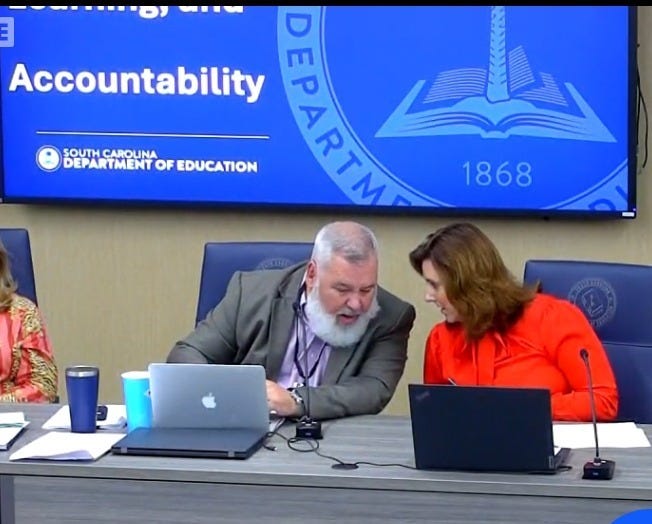These Books Are Now Illegal in South Carolina Schools
This paid post is also available in full for FREE over at the Center for Educator Learning and Wellness website. Click here to access that free version. I also wrote a piece on the committee hearing this week detailing further actions on four of the listed books.
When one knew that any document was due for destruction, or even when one saw a scrap of waste paper lying about, it was an automatic action to lift the flap of the nearest memory hole and drop it in, whereupon it would be whirled away on a current of warm air to the enormous furnaces which were hidden somewhere in the recesses of the building.
-1984 (George Orwell)
“We’re not banning books, we’re just keeping kids from being indoctrinated.”
“We’re not banning books, we’re making sure they’re age appropriate.”
“We’re not banning books, you can still buy them on Amazon.”
“We’re not banning books, we’re just removing them from every public school in the state.”
South Carolina’s system for selecting and banning books has changed swiftly over the past several years, with a greater and greater emphasis on fewer and fewer people deciding which books can and cannot be accessed freely by the over 800,000 students in the state’s public school system.
Three years ago, most parents in the state had a fairly direct recourse if they had a book they found problematic, whether that book was provided optionally in a school or classroom library, or was assigned by a teacher: they could call an adult at the school, and work with that adult, whether a teacher, librarian, or administrator, to restrict access to the book for their own child. (Or, in some cases, they likely had a conversation with that other adult that gave them an opportunity to change their mind. I sometimes wonder if that’s what some of our neighbors who have become fixated on removing books from schools are actually afraid will happen.)
Two years ago, most districts began to respond to the growing politicization of books and content (under the general umbrella of anti- “woke” politics). These policies varied slightly from district to district, but generally speaking a resident of a district could challenge a book or books (or, in some cases, huge numbers of books). The district would then use some process-- often a committee review process that included district parents and librarians-- to make a determination about whether the book fit in with the district’s educational mission.
And this year, the South Carolina Board of Education, under the direction of Superintendent of Education Ellen Weaver, passed a sweeping book challenge regulation that essentially allows any parent of a public school student in the state to flag any book for potential removal from every public school in the state. (That the regulation doesn’t apply to private schools, even those which have received government subsidies from the since-ruled-unconstitutional voucher law, may not be a coincidence.)
SC committee moves to restrict CRANK, delay decisions on other books
The South Carolina Instructional Materials Review Committee held its second meeting today after being established this year in response to the passage of State Board Regulation 43-170, which expands the State Board of Education’s power over instructional materials decisions and attempts to define content which is unsuitable for all students. The committee ultimately voted unanimously to restrict one book, retain another, and postpone decision on the rest.
Keep reading with a 7-day free trial
Subscribe to Other Duties (as assigned) to keep reading this post and get 7 days of free access to the full post archives.





